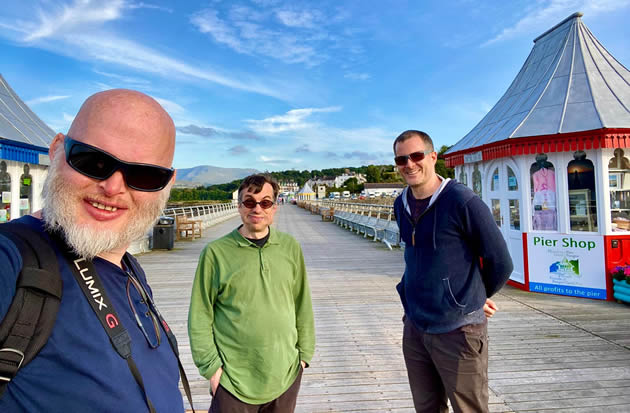Podcast: Play in new window | Download
Here’s the latest news from the world of Omniglot.
We have several new adapted and constructed scripts this week:
Compact Morse Code, a way to write Morse Code in a condensed way devised by Zmitro Lapcionak.

Swedish Runes (ᛋᚡᛂᚿᛋᚴᛆ᛫ᚱᚢᚿᚮᚱ), a way to write Swedish with medieval runes devised by Sven Salvenson.
ᛂᚿ᛫ᛑᛆᚵ᛫ᛒᚯᚱᚤᛆᛑᛂ᛫ᛋᚮᛚᛂᚿ᛫ᚮᚴ᛫ᚡᛁᚿᛑᛂᚿ᛫ᛒᚱᚰᚴᛆ᛫ᚮᛉ᛫ᚡᛂᛉ᛫ᛆᚠ᛫ᛑᛂᛉ᛫ᛋᚮᛉ᛫ᚠᛆᚱ᛫ᛋᛐᛆᚱᚴᛆᛋᛐ᛬ᛑᛂ᛫ᚴᚢᚿᛑᛂ᛫ᛁᚿᛐᛂ᛫ᛂᚿᛆᛋ᛫ᛋᚰ᛫ᛑᛂ᛫ᛒᛂᛋᛐᛅᛉᛑᛂ᛫ᛋᛁᛦ᛫ᚠᚯᚱ᛫ᛆᛐ᛫ᚢᛚᛉᛆᚿᛆ᛫ᚡᛆᚱᛆᚿᛑᚱᛆ᛫ᛔᚰ᛫ᛂᚿ᛫ᛚᛁᛐᛂᚿ᛫ᛐᛅᚡᛚᛁᚿᚵ᛬”ᛋᛂᚱ᛫ᛑᚢ᛫ᛉᛆᚿᛂᚿ᛫ᛑᛅᚱ᛫ᚿᛂᚱᛂX”ᛋᛆᛑᛂ᛫ᚡᛁᚿᛑᛂᚿ ᛐᛁᛚ᛫ᛋᚮᛚᛂᚿ᛬”ᛚᚰᛐ᛫ᚮᛋ᛫ᛋᛂ᛫ᚡᛂᛉ᛫ᛋᚮᛉ᛫ᚴᛆᚿ᛫ᛋᛚᛁᛐᛆ᛫ᛆᚡ᛫ᛡᚮᚿᚮᛉ᛫ᚱᚮᚴᛂᚿ᛫ᛋᚿᛆᛒᚿᛋᛐ᛬”
Goulsse, a way to write the Gur languages of West Africa developed by Wenitte Apiou and Babaguioue Micareme Akouabou.

There are new language pages about:
- Tai Dón (ꪼꪕꪒꪮꪙꫀ), a Southwestern Tai language spoken in Vietnam, Laos and China.
- Láá Láá Bwamu (làa làa bũamu), a Gur language spoken in Balé Province in the Boucle du Mouhoun Region, and in the Hauts-Bassins Region of Burkina Faso.
New phrases page: Yongbei Zhuang (Cuengh), a variety of Zhuang spoken in Guangxi Zhuang Autonomous Region in southern China.
There are new numbers pages in:
- Yongbei Zhuang (Cuengh)
- Tai Dam (ꪼꪕꪒꪾ), a Southwestern Tai language spoken in Vietnam, Laos, Thailand and China.
There’s an Omniglot blog post entitled Before the Deluge, which is about the word antediluvian and related words, and the usual Language Quiz. See if you can guess what language this is:
Here’s a clue: this language is spoken in the far north of Canada.
The mystery language in last week’s language quiz was Judeo-Arabic (ערבית יהודית), a variety of Arabic spoken by Jews in Algeria, Morocco, Tunisia, Lebanon, Yemen, Israel and the USA.
There’s a new Celtiadur post are about words for Waves and related things in Celtic languages.
There’s an episode of the Celtic Pathways podcast about words for Druids and related people.
In the Adventure in Etymology we look at the word photoptarmosis (a condition that involving sneezing when exposed to bright lights such as the sun).
I made improvements to the Tai Dam language page, and made a separate page about the Tai Viet script.
For more Omniglot News see:
https://www.omniglot.com/news/
https://twitter.com/Omniglossia
https://www.facebook.com/groups/omniglot/
https://www.facebook.com/Omniglot-100430558332117
You can also listen to this podcast on: Apple Podcasts, Amazon Music, Stitcher, TuneIn, Podchaser, PlayerFM or podtail.
If you would like to support this podcast, you can make a donation via PayPal or Patreon, or contribute to Omniglot in other ways.





